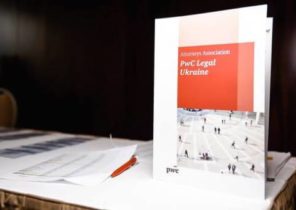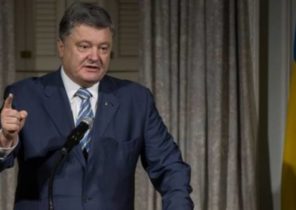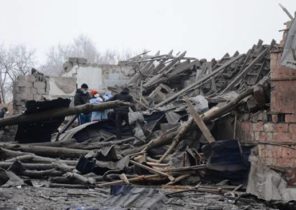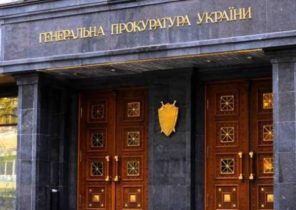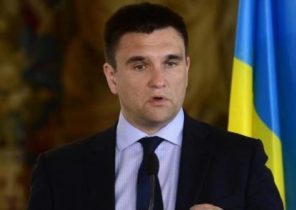Russian President Vladimir Putin, unfortunately, has secured support in the country at the expense of economic growth and the revival of the “Russian world”. In conditions of sharp decline of the Russian economy, it looks increasingly likely that the Kremlin for the return of his Imperial status would attack any neighboring country from the former Soviet republics. 12 years ago, Russia invaded Georgia to divert public attention from the financial crisis of 2008. And in 2014, she invaded the Ukraine, to make it easier to quell growing protests against Putin’s rule. Because of a combination of factors the next few months will be especially dangerous not only for Russia’s neighboring countries but also for Russia itself.
Aggressive foreign policy could divert attention from the economic decline in Russia, and the global pandemic provides a unique strategic opportunity. Western countries are concerned about the health care crisis and its economic consequences. In addition, the US is experiencing social and economic turmoil in the midst of the election campaign, causing sharp differences. Putin urgently try to create in a foreign country is a fait accompli, the more so because he may have to deal with more aggressive administration (USA), if the President becomes ex-Vice President Joe Biden. Although the staff of the national security of the United States actively opposes the Russian aggression, Putin believes trump more accommodating. And if trump re-elected, Putin will try to conclude a Grand deal that will confirm the new conquests of Russia.
The Kremlin has several options for offensive action in the countries along its long European and Central Asian borders. Although Moscow is eager to seize Northern Kazakhstan, many of whom are ethnic Russians, such an operation would be long and destructive. Besides, she pushed away from Russia’s other allies from Central Asia. A direct attack on any NATO country that have large Russian-speaking population, for example, Estonia or Latvia, may be tempting, but it will probably provoke a response from the United States to protect its allies. The most vulnerable are the countries that are not members of NATO because they are not under the protection of which is guaranteed by the system of collective security of the Alliance.
A key element of neo-Imperial plans of Moscow remains Ukraine. Independence and integration with the West endangering the unfair Russia’s claim to history, identity, culture and territory of this country. Despite the fact that Russia is occupying the Ukrainian Crimea and parts of Eastern Donbass, Moscow failed to return Kyiv under their control. Therefore, Putin is considering several options for implementing another attempt on the sovereignty of Ukraine. Among these options a new offensive to expand the territory of Donbass, under the control of the puppet “government” after allegations that the Minsk process was a complete failure, and even direct annexation of the Donetsk and Luhansk “people’s republics”.
Another viable option is surgery, disguised as humanitarian action water affected by the drought of the Crimea. This would capture a greater part of the southern coast of Ukraine from the Azov sea to Odessa, a major port city. The result of this operation Ukraine would have lost access to the Black sea and its economy would be in a much sorrier state. In addition, there would be a direct threat to Romania, a NATO member, as well as for commercial shipping routes and energy platforms in the Black sea. Russia massed near the Ukrainian border troops of 150 thousand people and more than 100 warships, which are in a state of high alert, and conducts a series of exercises, practicing offensive operations. Moscow claims that it provides military security, conducting activities to protect against terrorist threats, but the goal looks more sinister.
Looms the possibility of absorption of Belarus, which Moscow considers part of Russia, a country with a false sense of national identity. The growing unrest in Belarus and the disputed presidential election with questionable results, is scheduled on the ninth of August, Putin can use as pretext and pretend to be the liberator of the country from the autocratic rule of Alexander Lukashenko. Do not rely on the fact that the fall of Lukashenko’s regime would mean the coming to power in Minsk the democratic Pro-Western government. On the contrary, Moscow will make all efforts to ensure that Belarus has not followed the path of Ukraine and Georgia, towards Western institutions.
But despite Putin’s calculus, and the expansion of Putin’s Empire may lead to the opposite effect and have negative consequences in the country. Still open opposition, disagreement, and opposition to Moscow have been associated with specific causes of discontent — be it the loss of the territory of Ingushetia, the resignation of the popular Governor of the far Eastern city of Khabarovsk, infringement of linguistic rights of small Nations or environmental pollution in the far North. Paradoxically, instead of to divert attention from domestic problems offensive action against a foreign state, may strengthen the people’s discontent and to direct popular anger in another direction.
Costly military adventure, which contributes to further financial depletion and isolation of Russia, can convince a significant portion of the Russian population that the only solution is the removal of Putin from power.
